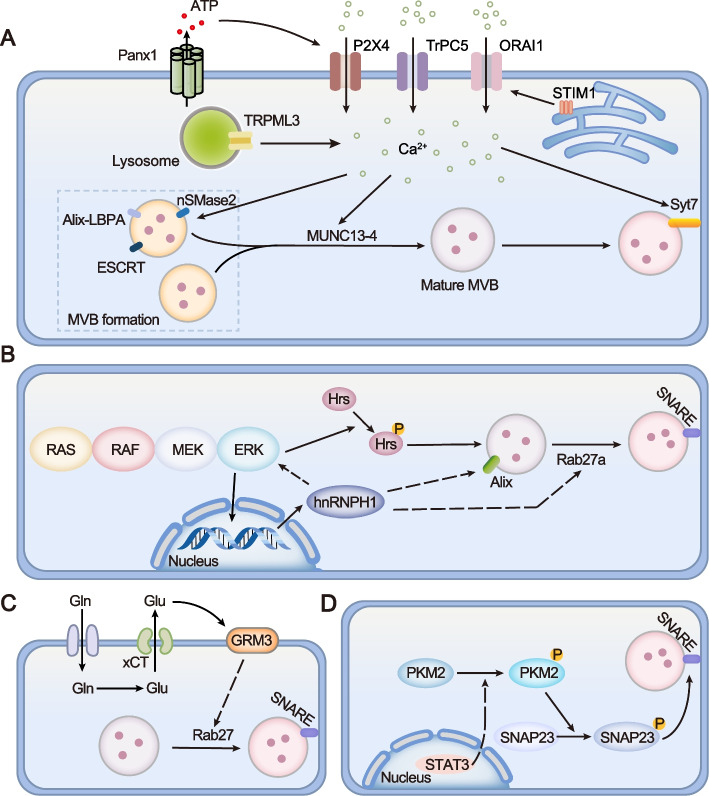Fig. 6.
Aberrant activation of signaling pathways regulates exosome secretion in cancer. A. Increased Ca2+ in the cytosol that was caused by various stimuli contributes to the activity and function of multiple proteins mediating exosome generation, such as ESCRT, Alix-LBPA interaction, nSMase2, Munc13-4, and Syt7. B. RAS/RAF/MEK/ERK pathway signaling promotes the transcription of hnRNP H1, through which to facilitate exosome biogenesis by upregulating the expression of Alix and Rab27a. Moreover, there is a positive feedback loop between Ras signaling and hnRNP H1. In addition, ERK interacts with and phosphorylates Hrs, thereby promoting exosome secretion. C. Glutamine importer ASCT2 transfers extracellular glutamine (Gln) into the cell, where it can be converted into glutamate (Glu). Subsequently, intracellular glutamate is exported outside the cell by xCT. After binding to its receptor GRM3, GRM3 promotes Rab27-dependent exosome release. D. Activation of STAT3 promotes sequential phosphorylation of PKM2 and SNAP23, thereby accelerating the formation of the SNARE complex and exosome secretion

